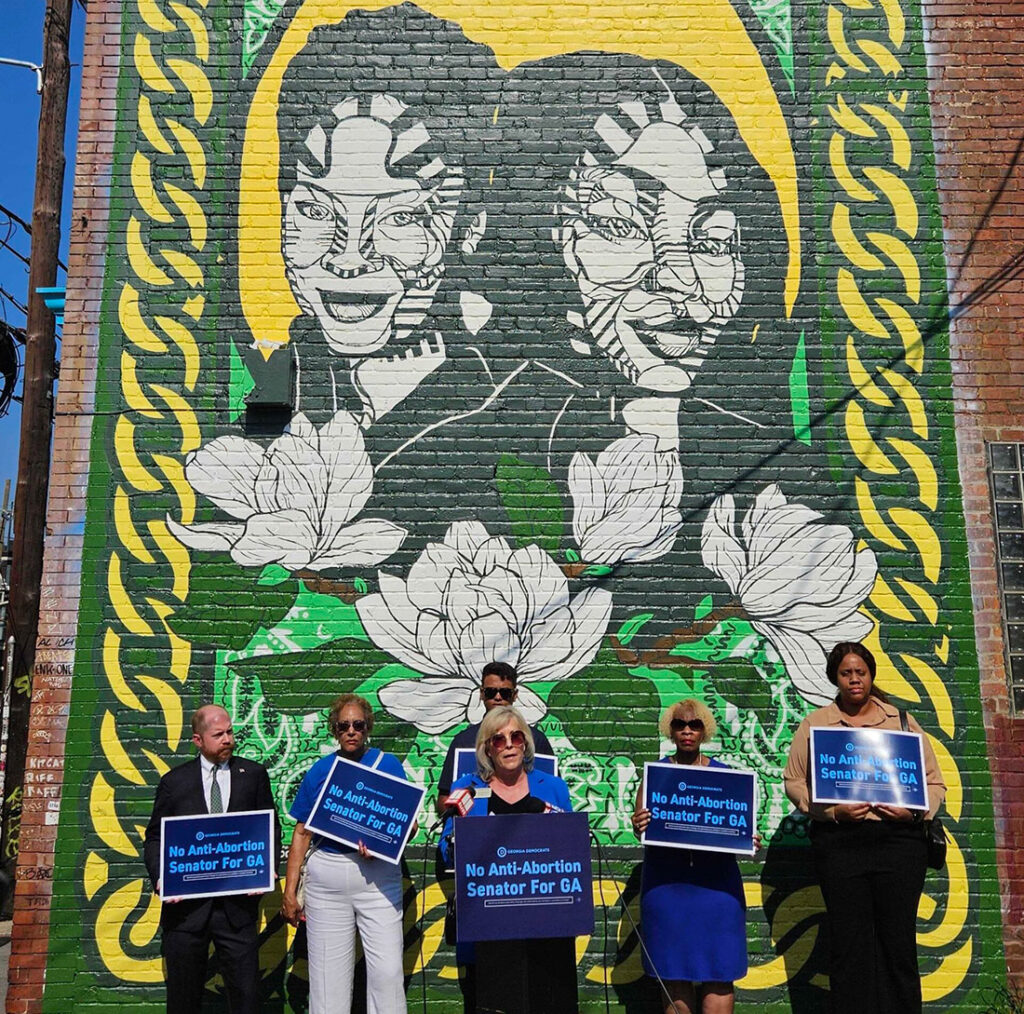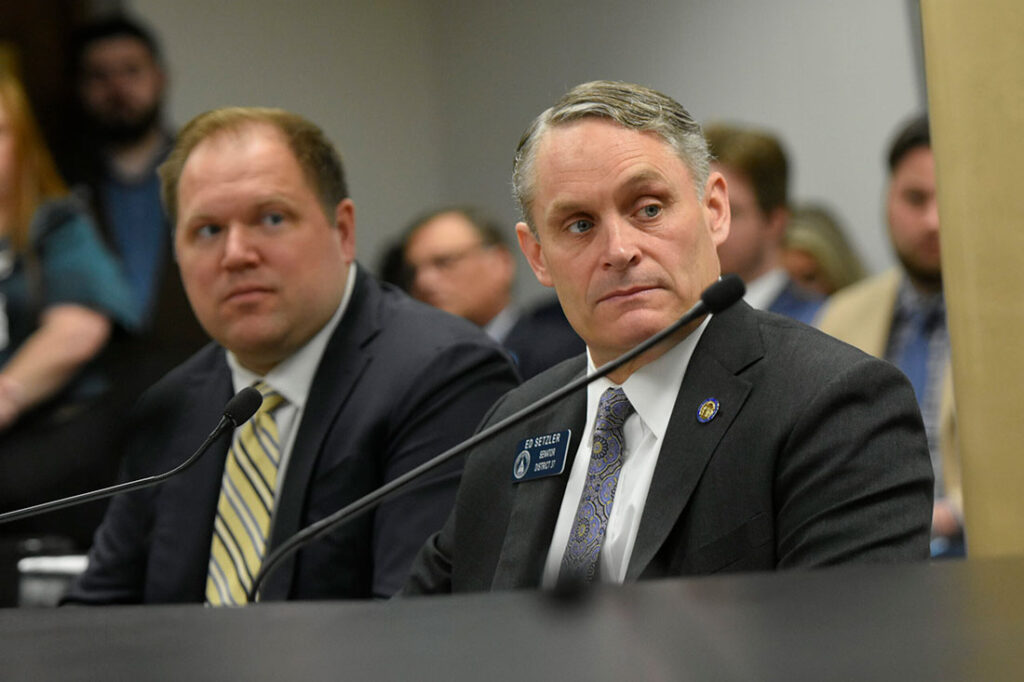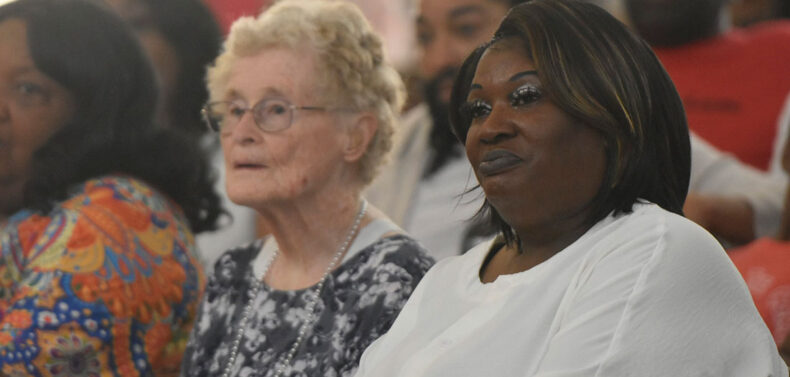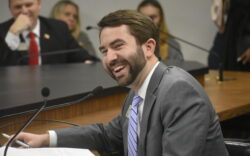Roe v. Wade, the landmark Supreme Court case enshrining abortion rights across the country, was overturned three years ago last week in a case known as Dobbs v. Jackson Women’s Health Organization, intensifying a yearslong battle over access to reproductive health care in Georgia. The fallout of the Dobbs decision is continuing to cause ripple effects throughout the state, with advocates on both sides gearing up for a fight that will play out—at least in part—at the ballot box in 2026.
For Democrats, who are hoping to see incumbent U.S. Sen. Jon Ossoff reelected for another term, access to reproductive health care is a crucial part of the campaign. High-profile cases of Georgia women whose deaths have been tied to Georgia’s six-week abortion ban have also cast a national spotlight onto the state’s restrictive laws. Georgia’s law bans most abortions once fetal cardiac activity is detected, which is usually at about six weeks and before most women know they are pregnant.
Adriana Smith, a 30-year-old mother and nurse, was roughly two months pregnant when she was declared brain dead after experiencing a series of blood clots in mid-February. Doctors told Smith’s family that while she had no chance of recovery, her organs would be kept functioning so as not to violate Georgia law. Months later her baby, Chance, was delivered by emergency cesarean section and taken to the neonatal intensive care unit, weighing one pound 13 ounces. The family said they planned to take Smith off life support.
Two other Georgians, Amber Nicole Thurman and Candi Miller, both died in 2022 after suffering complications from taking abortion pills. Thurman died in a hospital after doctors waited nearly a day to perform a routine procedure to remove fetal tissue from her uterus; Miller died after family members said she was afraid to seek medical care because of the recently enacted six-week abortion ban.

At a press conference held in front of a mural depicting Thurman and Miller, members of the Democratic Party of Georgia criticized the state’s law, citing cases like Thurman, Miller and Smith’s as evidence of the danger Georgia’s ban poses for those seeking reproductive health care. “We’ve seen multiple women tragically lose their lives and all because some fat cat politicians think that they know better than women, they know better than those women’s families, they know better than doctors about how to make health care decisions about women’s own bodies,” said Charlie Bailey, who chairs the Democratic Party of Georgia.
Republicans running for the U.S. Senate in 2026 include congressman Buddy Carter, who represents a district in coastal Georgia, and Georgia Insurance and Safety Fire Commissioner John King, who have both praised Georgia’s six-week abortion ban. Congressman Mike Collins, a Jackson Republican, is also seen as a potential contender for the race, though he has not announced his candidacy.
State Rep. Shea Roberts, (D-Atlanta) highlighted the turmoil Georgia’s abortion restrictions pose for doctors trying to administer care for pregnant patients, and criticized Republicans’ response to the ban’s repercussions. “Georgia’s abortion laws are vague, often leaving doctors and hospitals scrambling with their lawyers instead of giving patients the care they need,” Roberts said. “These women should be alive today, and they should still be with their families, yet Carter, King and Collins have stood by the very ban that led to these deaths.”
However, state Sen. Ed Setzler, an Acworth Republican who authored Georgia’s six-week abortion ban, said he celebrated the overturning of Roe v. Wade. “When the Dobbs decision came down, we were overjoyed because it gave legislatures, gave the elected representatives, the people, the ability to handle these very, very difficult circumstances, and balance the very difficult circumstances women find themselves in with the basic right to life of a living, distinct child, and our state took it very seriously,” he said.
Setzler also defended his legislation, officially called the Living Infants Fairness and Equality (LIFE) Act, arguing that provisions aimed at helping pregnant Georgians recover child support during their pregnancies and allowing them to claim “unborn children” on their taxes provided families with extra support that other states’ bans did not include. “Our state had worked in a very careful and balanced way to give balance to these difficult circumstances with the life of a child in a way that I think was thoughtful,” he added. “Many other states I don’t think took the time that we did to work through that, and I’m proud of the work we did.”

He also criticized Georgia’s Democratic Party, saying it was “sickening” that the party “seizes all these tragic circumstances to try to score points.”
However, reproductive health care advocates argue that restrictions on abortion have caused downstream effects that limit health care access for all Georgians and impact rural residents of the state most acutely. “The effect Georgia’s abortion ban has on our health system is felt all over the state,” said Jaylen Black, the vice president of marketing and communications for Planned Parenthood Southeast. “Doctors are fleeing the state. Some of them won’t move to Georgia. Medical students avoid residency programs in our state, and that makes it harder for Georgians to get the care that they so desperately need.”
Court Battle Continues
Georgia’s six-week abortion ban was briefly overturned last year in a ruling by Fulton County Superior Court Judge Robert McBurney, who declared the state’s law unconstitutional after the SisterSong Women of Color Reproductive Justice Collective filed a lawsuit in state court in 2022. That action was short-lived. The Supreme Court of Georgia quickly reinstated the ban after Georgia Attorney General Chris Carr filed an emergency injunction, allowing the restriction to remain in effect while the court considered a narrow portion of the lawsuit.
However, an unrelated state Supreme Court ruling from earlier this year has complicated the plaintiffs’ case. Wasserman v. Franklin County, which was decided in January, created a new precedent that prevents third-party entities from suing on behalf of someone else. As a result, abortion rights advocates like SisterSong are now unable to file lawsuits on behalf of their patients. “At a minimum, a plaintiff must assert her own rights to maintain an action in Georgia courts,” the Supreme Court stated in a February ruling in the abortion case.
The case now sits with the Fulton County Superior Court, where McBurney will evaluate whether the plaintiffs still have standing to bring the lawsuit. “For a second time, the Supreme Court has elected not to address this case on its merits (other than to stay this Court’s ruling on the merits),” McBurney wrote in an order this month.
The parties now have until July 21 to submit briefs that incorporate the two Supreme Court rulings before the case can proceed.
Like what you just read? Support Flagpole by making a donation today. Every dollar you give helps fund our ongoing mission to provide Athens with quality, independent journalism.









